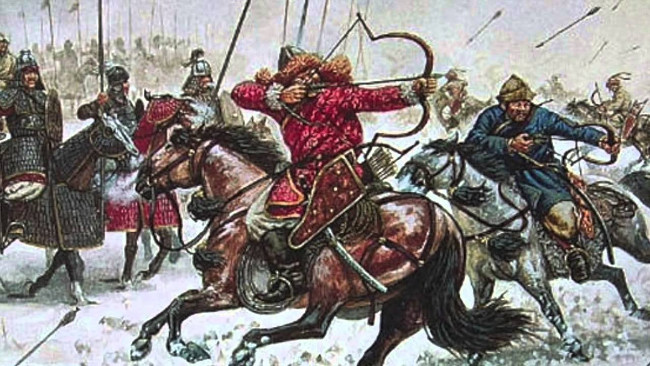Shocking revelations about the mighty warrior of Genghis Khan
The militant army has carried out extensive conquests across Asia as well as a part of Europe to build a strong army.
Behind successful conquests, the army of Genghis Khan once infected hepatitis B virus (HBV) . The results of the study were recently reported by Eske Willerslev, a geneticist at the University of Copenhagen, Denmark.

Hepatitis B virus has affected the life of the Mongols for thousands of years.(Illustration).
Mr. Willerslev and his colleagues came to the conclusion after studying the genome of 304 people who lived in the period of 200-7,000 years ago.
Accordingly, experts found evidence in the bones and teeth of the remains found in Asian steppes including: Russia, Kazakhstan, China, Turkmenistan and Uzbekistan.
Based on the test results, the experts identified (HBV) have affected the life of the Mongols for thousands of years.
People infected with HBV are at risk for cirrhosis and liver cancer. In particular, people infected with hepatitis B are 200 times more likely to develop liver cancer than those without HBV infection.
Through this study, experts hope the new research results will help to understand how the hepatitis B virus has changed over thousands of years. Thus, experts and scientists can find a way to treat patients with hepatitis B virus (HBV) in the future.
- The secret tomb of Genghis Khan is about to reveal
- Unexpectedly about the role of women under Genghis Khan
- The mystery behind the success of Genghis Khan
- The mysterious screen about the burial place of Genghis Khan
- Journey to find the tomb of Genghis Khan
- Dai Viet's power is seen from the best of Nguyen Mong Emperor
- 10 little things to know about the notorious Mongol leader Genghis Khan
- The biggest battle of Genghis Khan's military career
- Discovering the stronghold of Genghis Khan in Mongolia
- More than 800 million Asian men are descended from 11 ancestors
- All men, why did Genghis Khan give each soldier a set of silk underwear?
- Terrible truth about the Sparta warrior nation
 Discovered an ancient centipede fossil 99 million years old
Discovered an ancient centipede fossil 99 million years old Discovered bat-like dinosaurs in China
Discovered bat-like dinosaurs in China Discovered a 200-year-old bronze cannon of the coast
Discovered a 200-year-old bronze cannon of the coast Discover 305 million-year-old spider fossils
Discover 305 million-year-old spider fossils